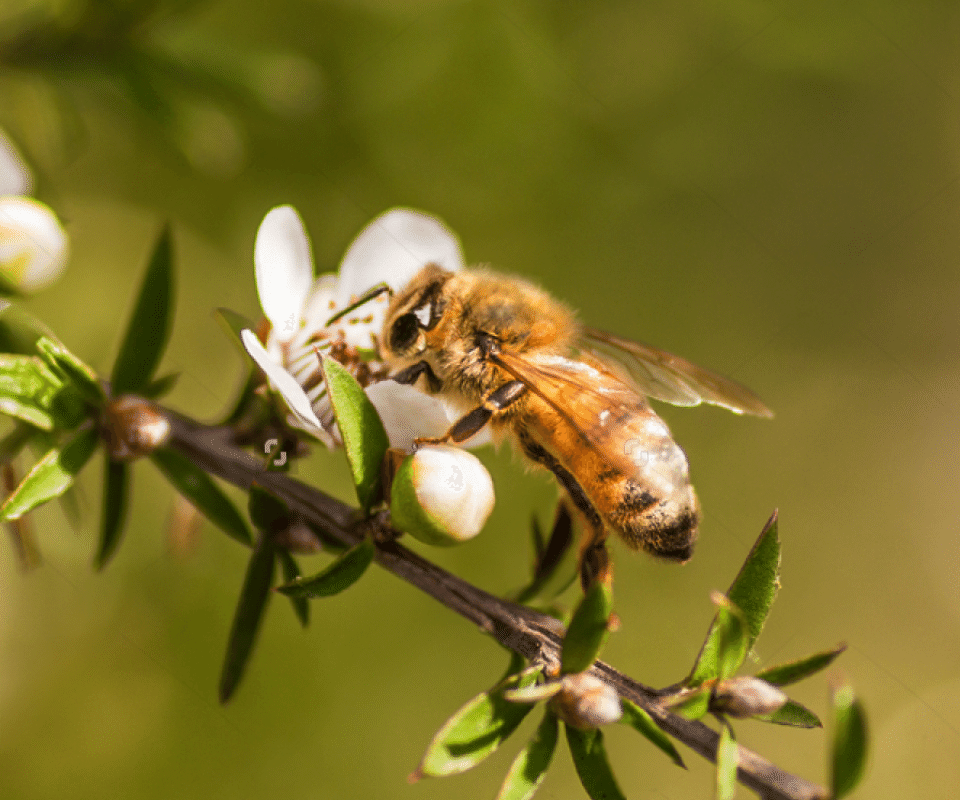At Genesis Honey Co., producing ultra-premium Mānuka honey isn’t just about the honey – it’s about the bees, biodiversity, and local communities. In an era where bee populations face serious threats from colony collapse disorder and environmental challenges, our ethical practices aren’t just good business – they’re essential for the future.
What is Ethical Beekeeping?
Ethical beekeeping means prioritizing bee welfare above all else. We never over-harvest honey, ensuring our bees always have sufficient reserves for themselves. Our hives remain free from harmful chemical pesticides, and we implement proper hive management techniques that respect the natural cycles of bee colonies. Unlike some operations that destroy hives before winter to save feeding costs, we nurture our colonies year-round.
Sustainability in Harvesting
Our Mānuka honey is harvested during the short bloom season with sustainability at the forefront. We carefully extract only excess honey, leaving sufficient amounts for the colony’s survival.
We work closely with landowners in Australia and New Zealand to preserve native flora, particularly focusing on protecting Mānuka trees in their natural habitat. Our hives are strategically placed in pristine, remote areas ensuring our bees have access to the cleanest possible environment, free from industrial pollution and agricultural chemicals.
Hive-to-Table Transparency
Our supply chain maintains integrity from start to finish. Each jar of Genesis Mānuka honey can be traced back to its specific harvesting region and batch. From the initial collection by our dedicated beekeeper partners to our minimal processing methods (cold extraction to preserve natural enzymes), we maintain transparency at every step.
This commitment to traceability not only ensures exceptional quality but creates a meaningful connection between you and your honey’s origin – fostering trust in an industry where authenticity matters immensely.
Supporting Bee Populations
We actively support pollinator programs and research initiatives aimed at understanding and combating the threats facing bee populations globally. We address hive health challenges through natural methods rather than antibiotics, carefully managing against threats like varroa mites through vigilant monitoring and organic interventions.
By purchasing Genesis honey, you’re directly contributing to bee conservation. The economic value placed on honey production creates powerful incentives to preserve bee habitats rather than convert land to other purposes – creating a win-win for bees and humans alike.
Community & Fair Trade
We partner with local beekeepers and indigenous landowners, sharing profits fairly and ensuring rural communities benefit from our operations. In New Zealand, we work with Māori land trusts, while our Australian operations engage with local farmers and traditional landowners to promote sustainable land management practices.
By paying fair prices to our beekeeping partners, we support rural livelihoods and incentivize continued dedication to ethical practices.
Packaging & Carbon Footprint
Our commitment to sustainability extends to our packaging choices. Our premium Mānuka honey comes in recyclable glass jars, and we use biodegradable materials for shipping protection. We’re continuously exploring innovations in sustainable packaging as we grow.
We’re actively working toward carbon-neutral operations through careful consideration of our transportation networks and investigating carbon offset programs for shipping emissions.
Common Questions About Ethical Honey Production
Are bees harmed in making honey?
Proper beekeeping doesn’t harm bees – they naturally produce excess honey. At Genesis, we ensure our bees remain healthy through respectful harvesting practices, never clipping queen wings, and maintaining natural colony dynamics.
Is Mānuka honey sustainable?
When done correctly, absolutely. The Mānuka bush grows naturally in the wild or can be farmed sustainably. The key is avoiding over-harvesting and habitat destruction – principles at the core of our sourcing strategy.
Does honey production hurt the environment?
Compared to refined sugar, honey has a significantly gentler environmental footprint and actually encourages the maintenance of green spaces for bee forage. While there is some environmental impact from transportation, we work to minimize this through efficient logistics.
What is hive-to-table?
Similar to the farm-to-table concept, our hive-to-table approach ensures complete traceability from individual hives to your jar. This guarantees freshness, authenticity, and eliminates concerns about dilution or adulteration that can occur with multiple handling stages.
Genesis Honey Co. Initiatives
We’re proud of our “Bee Guardian” program, where we train new beekeepers in organic methods and sustainable practices. We also donate 3% of our profits to bee conservation funds focusing on research and habitat preservation.
Looking forward, we’re working toward B-Corp certification and expanding our partnerships with environmental organizations dedicated to protecting pollinators worldwide.
A Sweeter Choice for the Planet
When you enjoy Genesis Mānuka honey, you’re not just treating yourself – you’re supporting a cycle of sustainability that helps keep bees thriving and nature in balance. We believe this commitment to ethical practices makes our honey taste even sweeter.
Want to learn more about our beekeeping stories? Sign up for our newsletter or follow us on social media where we regularly showcase our hives and the amazing beekeepers who tend them. Check our “About Us” page for more details on our sustainability journey.

Recent Comments